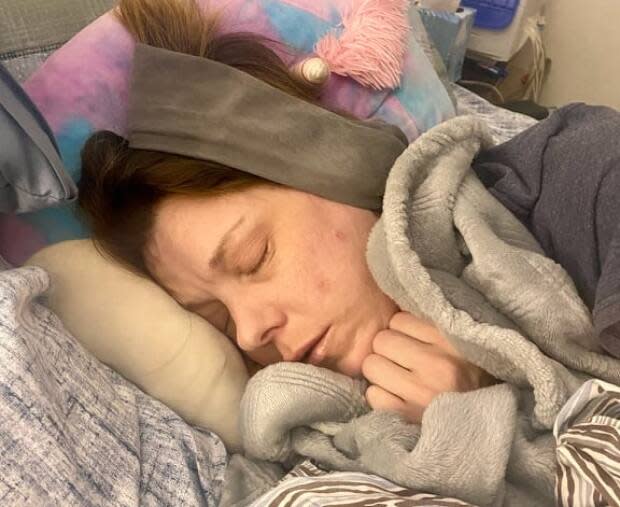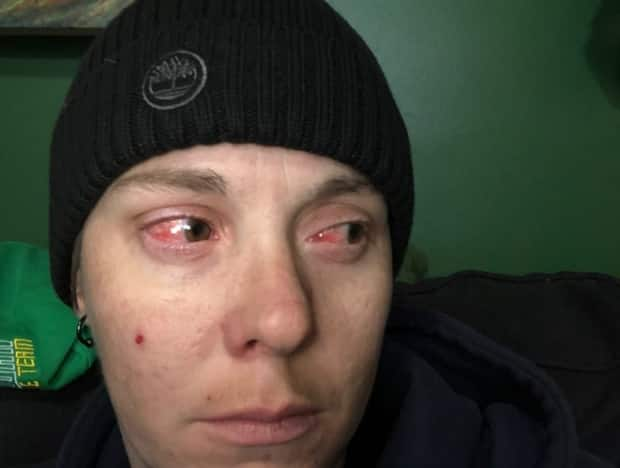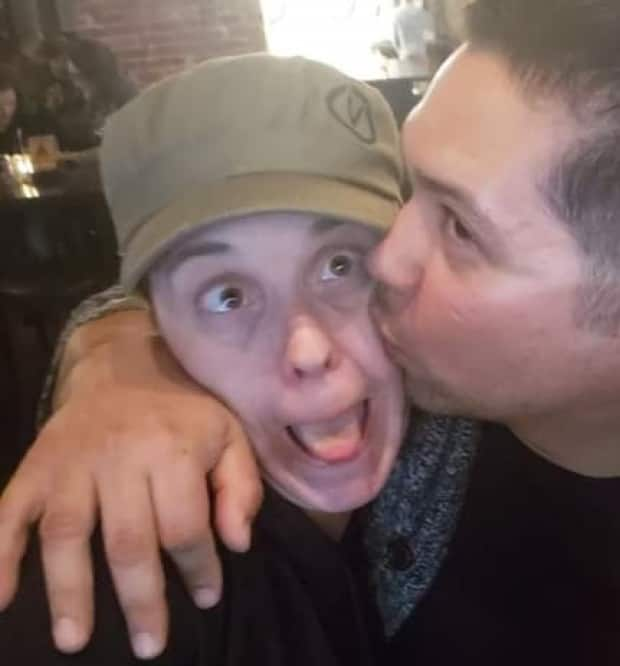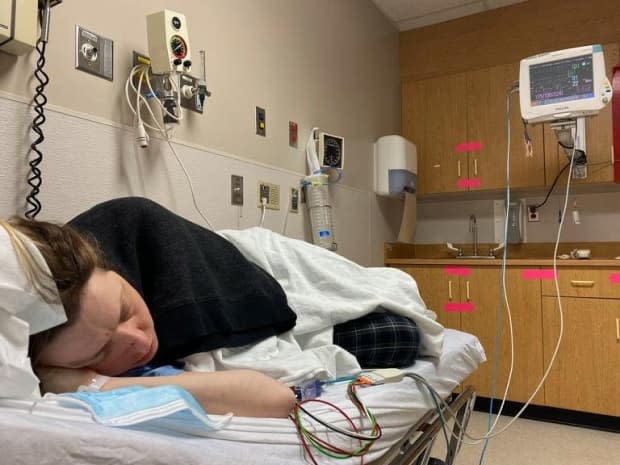Sask. resident with terminal kidney disease 'devastated' after transplant delayed due to COVID-19

Early last week a Saskatoon woman with terminal kidney disease was full of hope. She had a live organ donor and had been told her surgery was just around the corner.
In fact, 35-year-old Jessica Bailey was waiting for a call about her surgery date on Sept. 23, when the province announced it was suspending its organ donation program due to surging COVID-19 cases.
"So instead of getting happy news, I got devastating news. It's basically like being told you're going to get your life back. And then it gets ripped out from underneath you. So, devastating, I guess, is kind of putting it mildly," said Bailey.
"Living with kidney disease is not an easy thing. I don't think people know the half of it, to be honest. It's a lot to deal with mentally, emotionally, and it's physically draining."

Bailey first found out she had kidney disease in June 2018. Since then she lost her job, lost her house due to financial strain, and has to undergo 10 hours of painful dialysis each day.
But in October 2020, Bailey found out her best friend's husband's blood type matched hers. And he wanted to give her a kidney.
Jason Anderson has known Bailey since they were 17. He says the decision to donate a kidney to his close friend was a very easy one. But the road to surgery has been a long one so far.
Bailey says COVID-19 slowed the transplant process down because they could not get the necessary testing done for some time. It's been two years since Bailey learned she'd need a transplant. But with kidney disease, Bailey says it's felt more like 10.

When testing was being done again, Anderson had eight vials of his blood sent from his home in Metro Vancouver to Saskatchewan to find out if he was a suitable donor. But Anderson said they were mislabeled and sent to the wrong place. So he sent eight more.
The last thing Anderson needed to do was send over an image of his kidney to a surgeon in Saskatchewan through an encrypted USB drive.
But on Friday, he received a call from his organ donation co-ordinator. He was told the program had been shut down, and the USB drive was sitting on the surgeon's desk.
The surgeon hadn't seen it yet.
"To get past all those hurdles and to the point where it's like, 'yeah, we just got to book a date,' and then to get that taken away ... it was like it was shocking and utterly devastating," Bailey said.

Frustration with the unvaccinated
Bailey says she could die within the year. The longer she waits for her transplant, the more likely it will be that she won't be healthy enough to undergo the surgery.
Bailey is in a constant battle to not catch illnesses. In her state it's very easy for her to get sick, and the last three years have been fraught with hospitalizations, isolation and pain. She says the fatigue is the worst part.
"She's getting worse, physically getting worse," Anderson said. "But I think mentally, she's not in a good place. And I think that having that hope taken away from you is probably the worst part of it."
Both Bailey and Anderson's Saskatchewan organ donation co-ordinators have been taken off their case. Anderson's co-ordinator was sent to work in ICU.

During a COVID-19 update on Wednesday, Saskatchewan Health Minister Paul Merriman said the demand for health-care workers to help with the COVID-19 crisis is high.
"The decision [to cancel the program] is not made lightly. But we need to have … [that] expertise in our ICU because we're dealing with people who are unvaccinated," said Merriman.
Bailey says the fact that hospitals are brimming with COVID-19 patients is frustrating.
"People like me, we've been waiting years for this. And people that have not got a vaccine ... I mean, that's their choice. But it's been months and so they've had a choice for months. But due to their choice, I don't have a choice."
Anderson echoes Bailey's frustration over the unvaccinated in hospital.
"That's the only reason this surgery isn't happening.... I used to have empathy and try to understand what the people that chose not to get vaccines were feeling," Anderson said.
"But at this point, it's proven. Nobody's dying from these vaccines. Nobody's being tracked. At this point, I don't care."

Dreams of an out-of-province transplant
Anderson has hopes that Bailey can come to Vancouver for the transplant. And Bailey wants the Saskatchewan government to come up with a plan for people like her.
"Why are we not making leaps and bounds to make this happen, even if it is in other provinces?" said Bailey.
"I have the donor. I have everything else we need."
All that's left is getting a date for the surgery, she said.
"So why is it taking so long? Why are people dying over this?"
CBC reached out the Saskatchewan Health Authority for comment. It told CBC in an email that the SHA is not in a position to comment on the ability of other provincial health-care systems to care for transplant patients.

But the health authority says that in rare cases, organ transplants can be considered on a case by case basis.
"This is a high risk procedure, which means it is imperative that the conditions be as safe and ideal as possible, and the impact of COVID-19 has created additional complications and is drawing on needed resources for such a procedure," said the SHA.
As of Friday, Bailey has not been told what the donor program suspension means for her live kidney transplant. She says her new co-ordinator has not been able to give her a straight answer.
Bailey says the entire situation has also been hard on her family and friends.
"I think it's affected them greatly because they watched me deteriorate. And it's hard when you watch a loved one go from who they really are to just the complete opposite of what they are and not be able to do things for themselves."

Before she got sick, Bailey worked as power engineer for SaskPower. She loved to visit B.C. with her wife and was very social. And she really misses sports, especially playing hockey as a goaltender.
In the meantime, Bailey says all she wants is a surgery date so she can look forward to getting her life back again.

